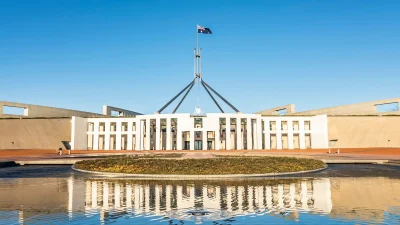Stability growing in emerging markets


In signs of a notable shift for a traditionally cyclical asset class, emerging market (EM) economies are slowly becoming more structurally sound due to macroeconomic changes and a growing middle class, according to Neuberger Berman head of investment strategy Alan Dorsey.
"Historically emerging markets have been highly vulnerable to cyclical issues that tend to create economic highs and lows not necessarily correlated to structural stability or financial realities, but this is now starting to change," he said.
Dorsey said emerging markets were slowly migrating to become more traditional, core asset classes - which presents opportunities to investors who have been traditionally underweight in their EM investments.
"In my view, the final 'hurdle' to becoming a permanent part of investor portfolios would be for emerging market economies to put in place more consistent governance practices and, in those countries where it is still a problem, reduce fraud and corruption," he said.
The factors driving the shift from the cyclical to structural nature of emerging markets include gross domestic product (GDP) growth, foreign exchange reserve accumulation, robust fiscal and monetary policies and the strength local institutions now have to invest in local infrastructure projects, according to Dorsey.
He said a growing middle class has also been a major factor in the increasing stability in developing countries, particularly the move from a dependence on exports to a more balanced economy built on domestic consumption and infrastructure investment.
"In China, India and Indonesia in particular, the number of households with an annual income between $5000 and $15,000 has grown rapidly over the last decade, and is predicted to increase further over the next 10 years," Dorsey said.
The most important result of these macroeconomic changes is that there has been a structural reduction of risk in EM economics, he added.
"While risk hasn't been eliminated entirely, we are seeing a situation where the risk levels of emerging markets are, in many cases, lower than they have been in the past, and potentially lower than those of many developed markets," Dorsey said.
The growth of exports has allowed such economies to substantially increase their currency reserves at a much faster rate than developed countries, further providing emerging market economies with the backing to avoid currency dislocation in the event of a financial crisis, Dorsey said.
Recommended for you
T. Rowe Price believes Australian growth is successfully managing to shrug off consumer weakness, but the firm’s multi-asset team is not yet positive enough to increase its underweight position.
Iress has issued an update denying the validity of “certain statements” made by an alleged threat actor, following a cyber incident last weekend.
The latest budget papers have outlined a $10 million provision for ASIC greenwashing enforcement activity as well as funds for a sustainable labelling regime to be partially met by industry levies.
Betashares has expanded its fixed income solutions with the launch of a new ETF offering exposure to subordinated bonds issued by the big four Australian banks.















